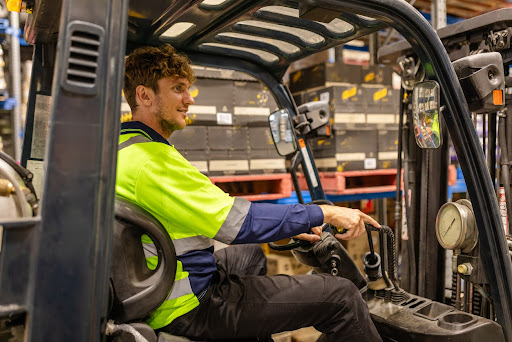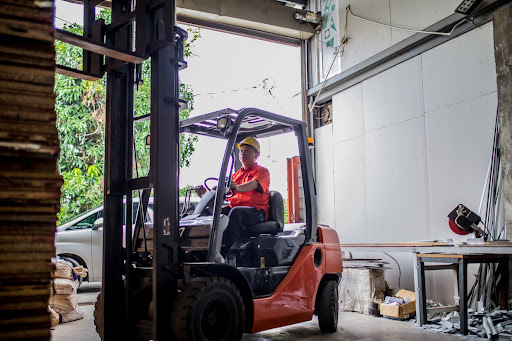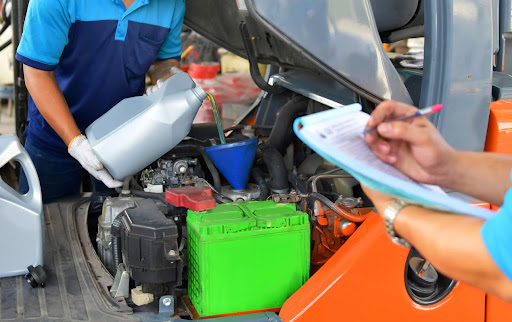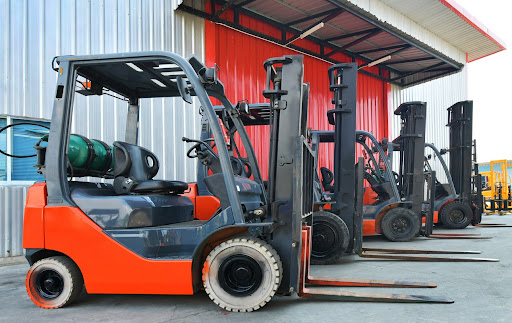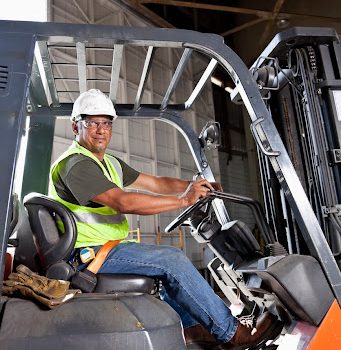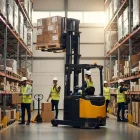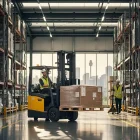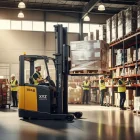Top Manitou Forklifts Available for Purchase
When it comes to heavy lifting, Manitou forklifts stand out. Known for their durability and versatility, these machines are a top choice for many industries.
But what makes Manitou forklifts so special?
They offer unique features like off-road capability and telescopic booms. Plus, they come in a range of models to suit various needs.
In this guide, we’ll explore the top Manitou forklifts available for purchase. We’ll also provide tips on finding a reliable forklift dealer and making the most of your investment. Let’s get started.
Why Choose Manitou Forklifts?
Manitou forklifts are synonymous with reliability and innovation. This makes them a preferred choice in material handling. Built with rugged design, they excel in challenging environments.
These forklifts cater to multiple industries, including construction, agriculture, and warehousing. Each model is engineered to meet specific operational demands. Their versatility is unmatched, offering seamless performance across different tasks.
Manitou forklifts are known for their advanced safety features. With load stability indicators and reinforced cabs, safety is prioritised. This ensures a secure working environment for operators.
Moreover, the operator comfort features enhance productivity. Ergonomic design and user-friendly controls minimise fatigue. This leads to efficient and comfortable operations throughout the day.
In addition, Manitou’s commitment to sustainability is evident. They offer electric models that reduce environmental impact. This makes them ideal for eco-conscious businesses looking to lower their carbon footprint.
Types of Manitou Forklifts for Sale
Manitou offers a diverse range of forklifts, each designed for specific needs. Their lineup includes telescopic handlers, rotating telehandlers, heavy-duty forklifts, and warehouse forklifts.
Telescopic Handlers
Telescopic handlers are versatile and robust. They feature extendable booms for reaching high places. This adaptability makes them ideal for various tasks, especially in construction.
Rotating Telehandlers
Rotating telehandlers provide enhanced maneuverability on job sites. Their ability to rotate 360 degrees maximises efficiency. This feature eliminates the need for repositioning, saving valuable time and effort.
Heavy-Duty Forklifts
Heavy-duty forklifts are built for the toughest jobs. They handle significant loads with ease. With high lifting capacities, they are indispensable in industries demanding strength and reliability.
Warehouse Forklifts
Warehouse forklifts are perfect for confined spaces. Designed for precision, they streamline operations in warehousing environments. Their compact design optimises space utilisation, ensuring smooth storage and retrieval tasks.
Key Features and Benefits of Manitou Forklifts
Manitou forklifts stand out for their robust construction and versatility. Their design accommodates different terrains and applications. This flexibility ensures they meet diverse operational needs across industries.
Safety is paramount with Manitou forklifts. They feature load stability indicators and reinforced cabs. These elements protect operators and reduce workplace incidents.
Fuel efficiency is another notable benefit. Manitou offers diesel, electric, and LPG models. Businesses can choose based on operational costs and environmental concerns.
Operator comfort is a priority for Manitou. Ergonomic designs reduce fatigue during long shifts. User-friendly controls make operation intuitive and efficient.
Manitou forklifts are known for their lifting capabilities. They can handle varying weights and reach impressive heights. This enhances productivity in demanding work environments.
Lastly, the ease of maintenance is a key advantage. Manitou’s commitment to quality ensures long-term durability. Regular servicing keeps these forklifts running at peak performance levels.
Finding a Reliable Forklift Dealer
Selecting the right forklift dealer is crucial. Authorised dealers offer quality assurance on Manitou forklifts. They guarantee genuine parts and certified repairs.
Experienced dealers provide valuable insights. They help in choosing the right model for specific needs. Their expertise can guide buyers through technical specifications.
A reputable dealer often offers financing and leasing options. This flexibility makes purchasing more accessible. Buyers can explore various financial plans to suit their budgets.
After-sales support from a trusted dealer is invaluable. They ensure timely maintenance and spare parts availability. Building a strong relationship with your dealer enhances the overall ownership experience.
Financing and Leasing Options
Investing in a Manitou forklift doesn’t need to strain your budget. Many forklift dealers offer flexible financing options. These plans help spread the cost over manageable monthly payments.
Leasing is another viable option for businesses. It allows access to the latest Manitou models without a long-term commitment. Leasing often includes maintenance and repair services, enhancing convenience.
Before finalising a purchase or lease, explore all available options. A good dealer will tailor financial plans to fit your needs. This customised approach ensures you make a sound financial decision.
After-Sales Support and Maintenance
Owning a Manitou forklift comes with long-term support. Forklift dealers provide comprehensive after-sales service, ensuring your equipment stays in optimal condition. Regular maintenance extends the life of your forklift.
Having access to original spare parts is crucial. Authorised dealers stock genuine parts to ensure high performance. Timely repairs and part replacements prevent downtime.
Manitou’s commitment to customer service extends beyond the sale. Technical support and expert advice are readily available, helping you resolve issues quickly. This ensures that your operations run smoothly and efficiently.
Manitou Forklifts in Different Industries
Manitou forklifts serve various sectors, each with unique needs. Their adaptable designs make them suitable for construction, agriculture, and warehousing. This versatility is a key advantage.
These forklifts are built to endure tough environments. In construction, they handle heavy loads and rugged terrains effortlessly. Their strength is unmatched.
The agricultural sector benefits from Manitou’s reliable performance. These forklifts help in handling livestock feed, hay bales, and equipment. Their use boosts farm productivity significantly.
In warehousing and logistics, efficiency is crucial. Manitou forklifts are known for their nimble maneuverability and load handling. They streamline inventory management and operations.
Construction
Manitou forklifts excel on construction sites. They lift heavy materials and navigate difficult terrains with ease. This capability enhances site efficiency.
Agriculture
In agriculture, versatility is vital. Manitou forklifts manage various tasks like lifting hay bales and equipment. This flexibility increases farm operations’ effectiveness.
Warehousing and Logistics
Warehousing demands precision and reliability. Manitou forklifts offer efficient stacking and storage. They reduce downtime and improve workflow significantly.
Their compact size and turning ability are perfect for tight spaces. This ensures optimal use of warehouse space, enhancing overall productivity.
FAQs About Manitou Forklifts
Here are some frequently asked questions to help you understand more about purchasing a Manitou forklift:
- What types of Manitou forklifts are available?
- Options include telescopic handlers, rotating telehandlers, heavy-duty forklifts, and warehouse forklifts.
- Can I find a used Manitou forklift for sale?
- Yes, many forklift dealers offer used models.
- What should I consider when choosing a forklift dealer?
- Look for authorised dealers with strong after-sales support and maintenance services.
These FAQs can help guide your decision in finding the best Manitou forklift to fit your needs.
Conclusion and Call-to-Action
Manitou forklifts offer reliable performance across various industries. Their durability and advanced features make them a top choice.
Contact a local forklift dealer today to explore the full range of Manitou forklifts for sale. Start enhancing your operations now!



